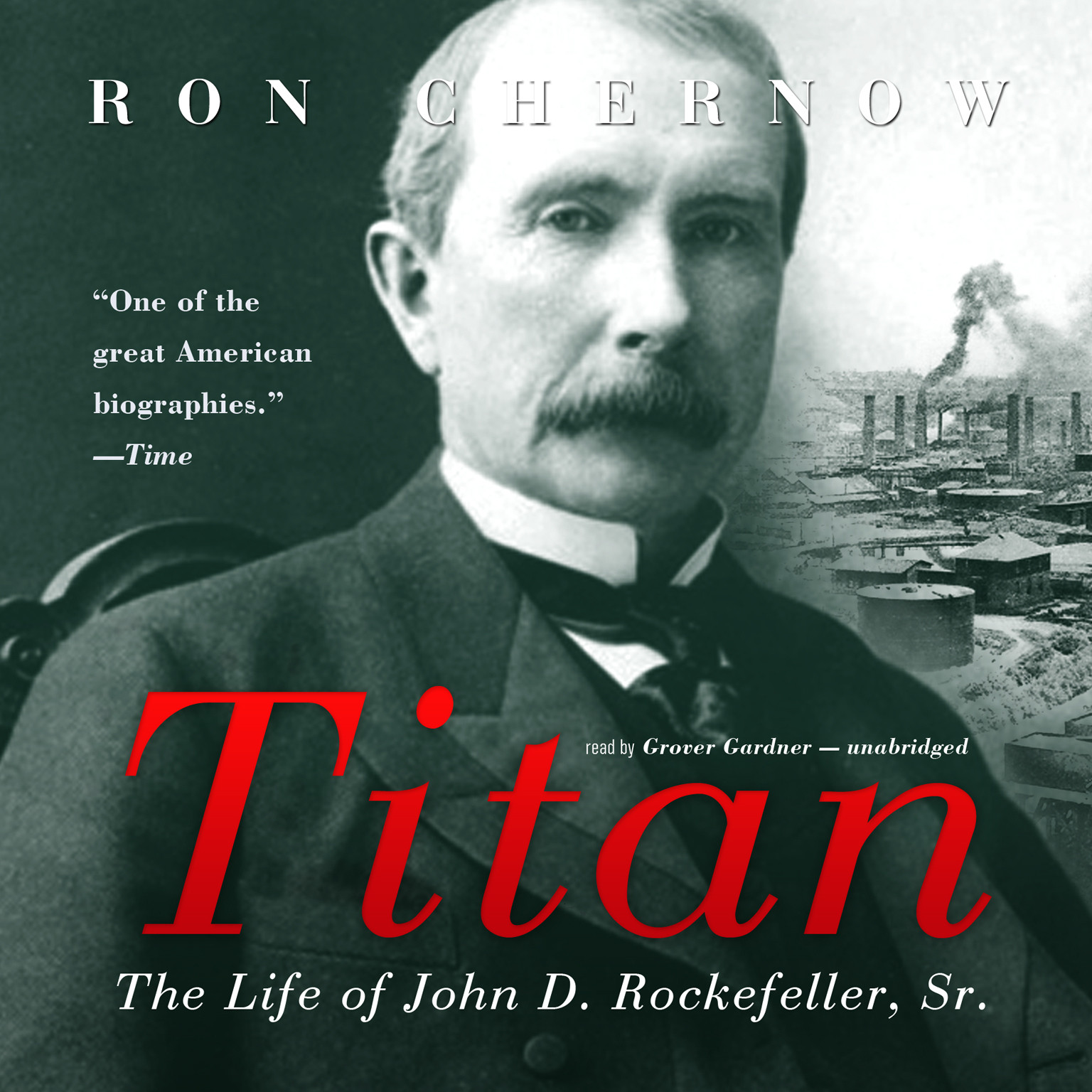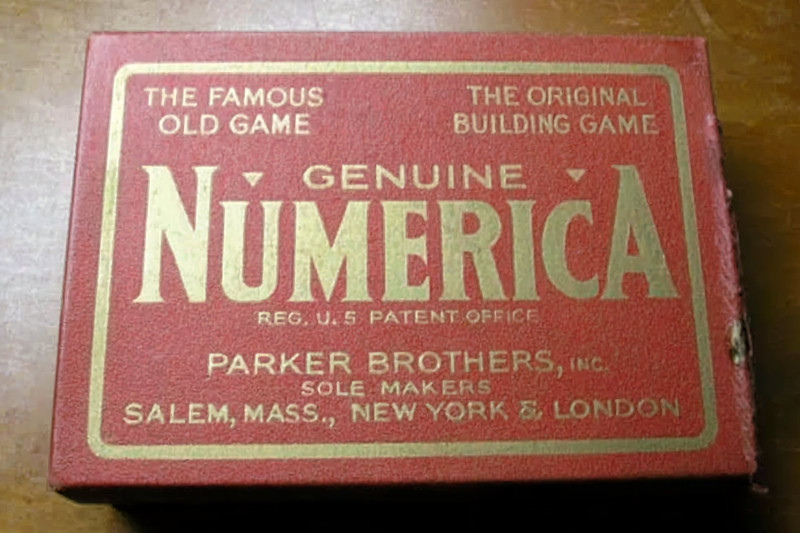and the distribution of digital products.
DM Television
Here Are 8 Life Hacking Lessons From John D. Rockefeller, The Richest Man Ever
He was history's wealthiest man, by a long shot, if you consider the wealthiest individuals of our lifetime…
- Elon Musk - $432 billion (I contend that this net worth is a BS overvaluation of the value of TESLA and Twitter!)
- Jeff Bezos - $239 billion
- Mark Zuckerberg - $207 billion
- Vladimir Putin - Up to $200 billion
- Bill Gates - $159 billion
- Warren Buffet - $142 billion
- Carlos Helu Slim - $100 billion
\ These individuals are mere paupers in comparison. John D's titanic wealth was matched only by his altruism. So much of his wealth was given away to organizations that have made a sustainable positive impact on the world that it would not be unreasonable to say that virtually every person alive today benefits in one way or another from his altruism. Was John D. a lifehacker? Absolutely.
\ This article is a distillation of lifehacks Rockefeller employed, as detailed in Titan: The Life of John D. Rockefeller, the +800 page exhaustively authoritative biography of his life, times, and tactics.
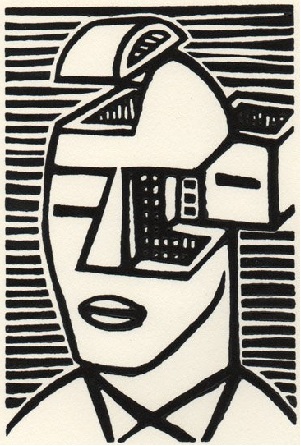
"Do not many of us who fail to achieve big things . . . fail because we lack concentration - the art of concentrating the mind on the thing to be done at the proper time and to the exclusion of everything else?"
\ Example of compartmentalization of mindset: One of the biggest challenges John faced in business was when the United States government ruled to break up his massive business empire. John was playing a game of golf with friends when a messenger delivered to John a telegraph with the news that his company was going to be fined many millions of dollars and subject to anti-trust laws. He looked at it briefly and then said to his golf buddies: "Shall we continue [the game]?"
\ His golf buddies knew what was going on with the court cases and insisted on a response from Rockefeller about what was going on with the court case. Rockefeller's response: "It was the maximum amount possible, but I'll be in hell before they ever get that money."
2. By the Numbers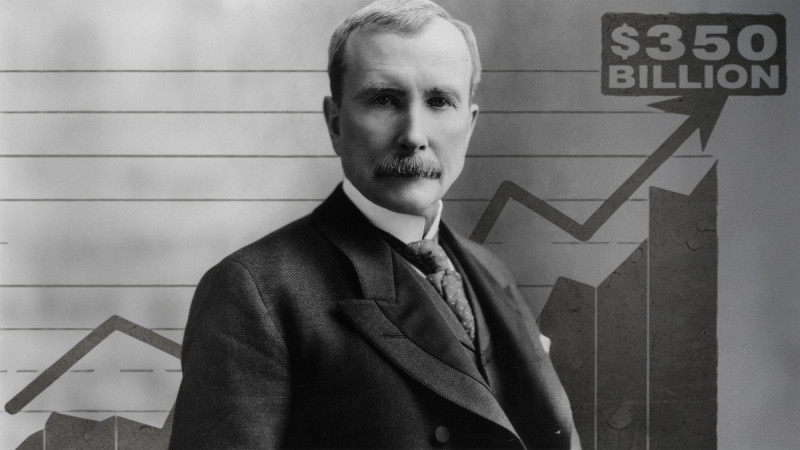
John carried on an intense lifelong love affair with numbers. If his titanic success can be attributed to one business quality, it was his accounting skills and commitment to running his business by the numbers. In fact, Rockefeller himself said:
\
"I charted my course by figures, nothing but figures."
\ Lifehackers, entrepreneurs, and ambitious visionaries often discount the importance of quantification and crunching the numbers; it really matters. You might ignore "the figures," as Rockefeller called them, thinking: I'm a big picture person or I'm an intuitive type. But the cost of success in almost anything meaningful in life is quantification…
\
- In business and entrepreneurship, the more granular you get about crunching the numbers for your marketing, product development, clients, sales, conversion, and accounting, the more you'll be rewarded.
\
- Quantifying your time management is a game-changer: a few years back, I started using the great Toggl time-tracking app and discovered that I actually wasted a lot of my time. Getting that report every week clarifies and motivates me to relentlessly hack away time wasters from my life.
\
- We are what we repeatedly do: Habits are what get us to our goals (or keep them frustratingly beyond our grasp). You just aren't taking your habits, goals, or promises to yourself (or others) seriously if you aren't tracking your habits. The best tool I've found for this is the free app Coach.me.
\
- In the Biohacking and health department (the lever for EVERYTHING you do), self-quantification pays dividends. Tracking your sleep score and heart rate variability will result in surprising, edifying self-discoveries; you'll discover what seriously sabotages you on a biological level.
 No surprise here, Rockefeller had a monster of a memory. He remembered, at any given time, the names of up to 3000 of his company's employees. Rockefeller, no doubt, used something like the AV Association Technique and would have read The Memory Book.
No surprise here, Rockefeller had a monster of a memory. He remembered, at any given time, the names of up to 3000 of his company's employees. Rockefeller, no doubt, used something like the AV Association Technique and would have read The Memory Book.
\ While all our terribly convenient technology makes it so easy to outsource our memory; this is letting the palace of human brilliance between your ears crumble. Nootropics can help, but the real way to maintain that palace is through a Mnemonics practice.
4. Preempting Responses With Body Language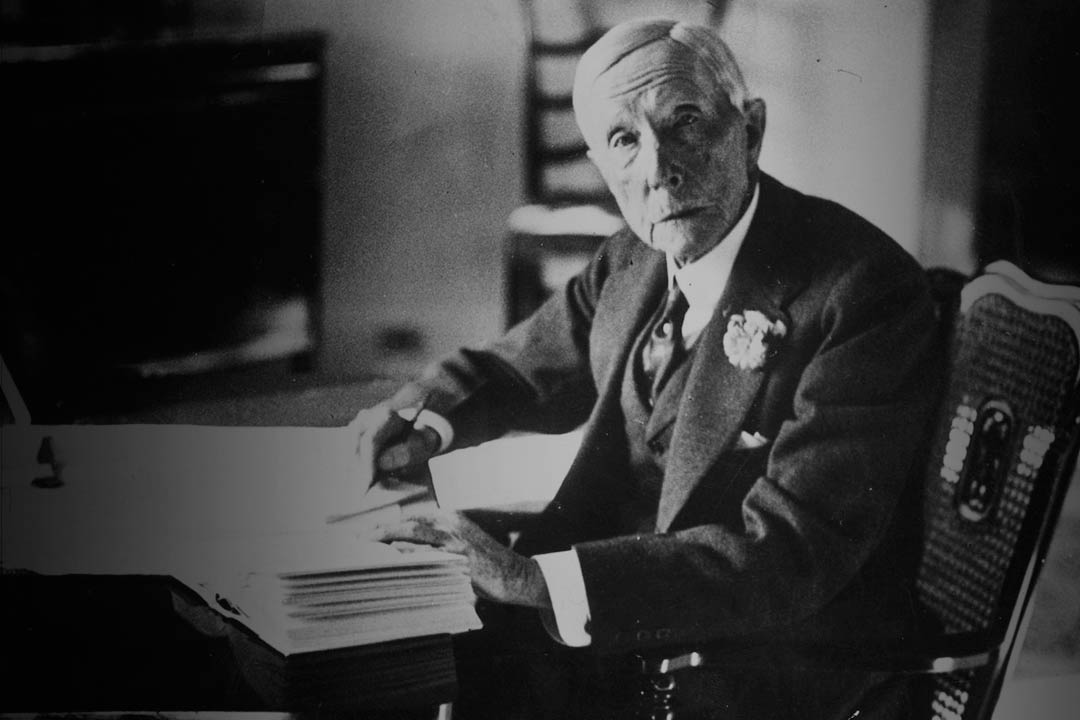
Most people approach interactions, especially confrontations, highly concerned with being heard and understood. As a result, we over-communicate, and we use many more words than are needed to make our point. Rockefeller often preferred to communicate first with his body language and then with his words.
\ Example: One man told John he had bought oil barrels at a great price of 44 cents a barrel, and he asked: "John, what do you think I should sell them for?" John turned to the man and stared at him silently, leaned forward, crossed his legs, put his elbow on his knee and his hand under his chin, and continued to stare for a few more seconds (the man grew very nervous and restless).
\ Then John sat back, uncrossed his legs, and looked away to continue his prior conversation. The man who asked the question started squirming, became uncomfortable, and had the gall to ask again, "John, so what would you do?" John (who was well-known for having sharp, piercing eyes) turned slowly and calmly replied, "I would do what I thought best."
5. Precise Scheduling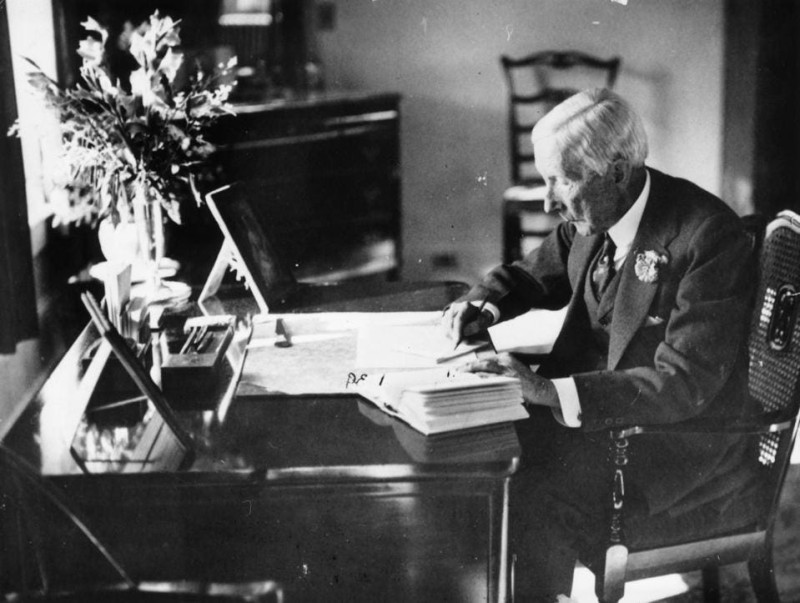 A good friend of John's, who spent a lot of time with him, said of his adherence to a daily schedule:
A good friend of John's, who spent a lot of time with him, said of his adherence to a daily schedule:
"something bordering on the superhuman, perhaps the inhuman-in this unbroken, mathematically perfect schedule. It was uncanny."
\ Rockefeller's daily schedule:
- Rising at 6 AM, he read the newspaper for an hour, then strolled through the house and garden from 7 to 8, giving a dime to each new employee and a nickel to each veteran.
\
- He then breakfasted at 8, followed at 8:45 by a game of Numerica (a puzzle game), which gave him time to digest his food properly (he was strict about relaxing after eating to let his food digest - that's a biohack for sure!).
\
- From 9:15 to 10:15, he worked on his correspondence, which was mostly devoted to his philanthropy and investments. (As many as 2,000 letters arrived daily at his home, most of them solicitations for money.)
\
- From 10:15 to 12, he golfed, and from 12:15 to 1 PM, he bathed and then rested.
\
- Then came lunch and another round of Numerica from 1 to 2:30.
\
- From 2:30 to 3, he reclined on the sofa and had mail read to him; from 3:15 to 5:15, he motored; from 5:30 to 6:30, he again rested.
\
- 7 to 9 was given over to a formal dinner, followed by more rounds of Numerica.
\
- From 9 to 10, he listened to music and chatted with guests, then slept from 10:30 PM to 6 AM.
\ He refused to deviate from this routine by one bit, even when the weather was a challenge.
6. Playing Brain GamesAs you can see, John spent a serious amount of time playing Numerica, a quintessential brain game. It consists of a grid of numbers that must be organized.
Want to work out your brain the same way John D. Rockefeller did? Download Numerica for your iPad or Android. If it had existed in his day, John D would, no doubt, have been a major fan of Dual N-Back software training: This is the one brain training task that is scientifically demonstrated to have intelligence transfer effects on your life beyond playing the game. It has made me a sharper web developer and, surprisingly, a better husband.
7. Rockefeller's Stock Market Investing Strategy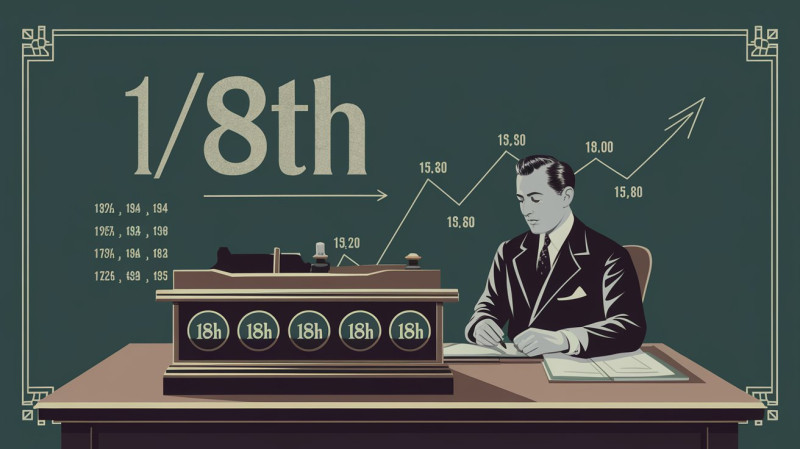 John's general sentiment was, "Avoid Wall Street, it's corrupt." However, he dabbled quite profitably in stock investments. His strategy was scary simple: Every day, one of his assistants would bring him a list of stocks. When a stock went down 1/8th of its trading price, he would buy it. When it went up 1/8th from where he bought it, he would sell it. A completely unemotional trading strategy.
John's general sentiment was, "Avoid Wall Street, it's corrupt." However, he dabbled quite profitably in stock investments. His strategy was scary simple: Every day, one of his assistants would bring him a list of stocks. When a stock went down 1/8th of its trading price, he would buy it. When it went up 1/8th from where he bought it, he would sell it. A completely unemotional trading strategy.
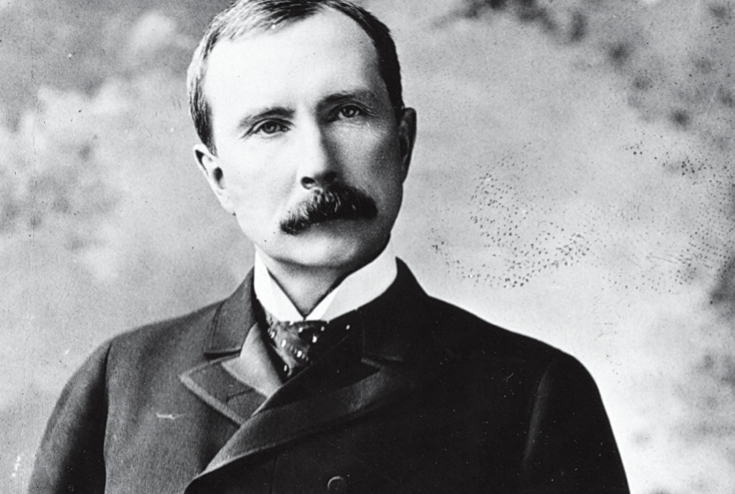
Many entrepreneurs prioritize fashion and clothing very low, but not Rockefeller; at work, he was always dressed immaculately in a nice suit with an umbrella, gloves, and silk hat. He also thought that nicely polished shoes were very important to maintain.
Want to Learn More About Rockefeller?https://youtu.be/SoE6o8M-V-Y?embedable=true
Check out the excellent historical TV series The Men Who Built America or read the biography Titan.
- Home
- About Us
- Write For Us / Submit Content
- Advertising And Affiliates
- Feeds And Syndication
- Contact Us
- Login
- Privacy
All Rights Reserved. Copyright 2025, Central Coast Communications, Inc.
